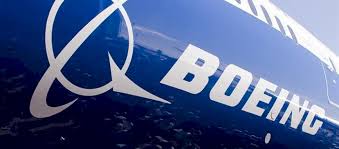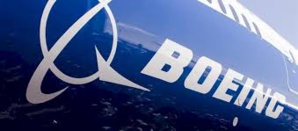People who were impacted by the deadly crashes of the Lion Air and Ethiopian Airlines crashes in which a total of 346 people were killed would be paid a total of $100 million, pledged Boeing on Wednesday.
"We at Boeing are sorry for the tragic loss of lives in both of these accidents and these lives lost will continue to weigh heavily on our hearts and on our minds for years to come," Boeing Chairman and CEO Dennis Muilenburg said in a press release. "The families and loved ones of those on board have our deepest sympathies, and we hope this initial outreach can help bring them comfort."
Local governments and non-profit organizations would be taken help of by Boeing to support "education, hardship and living expenses for impacted families, community programs, and economic development in impacted communities."
Those families and communities affected by the crashes could also get help from donations from the Boeing employees. The company announced that over the next six months, it would match all donations made by employees.
It was just about a week ago that a new flaw in Boeing’s 737 Max, the planes that were involved in the two fatal crashes and have been grounded globally since march this year, was detected by United States Federal Aviation Administration pilots during a simulated flight according to several reports quoting sources with knowledge of the matter. The latest flaw detected is related to the manner in which data is being processed by the flight computer which tends to impact the ability of the pilots of the planes to control them quickly and easily by following the necessary recovery procedures for the runaway stabilizer, said reports. The reports however claimed that the latest issues were not related to problems that had been identified earlier after the two fatal crashes within a span of five months which were related to the an anti-stall system, called MCAS, in the planes. This one is related to a broader anti-stall system called "speed trim."
"Through our comprehensive review process with the FAA, we determined last week there’s an additional flight condition we must address to reduce pilot workload and ensure the safety of the airplane and the flying public," Muilenburg said.
The company agrees with what FAA has said earlier that action must be taken by the regulator, he said, and added that the company is "already working on the required software."
The 737 Max planes would not be offered to the FAA for certification and safety clearance until we "have satisfied all requirements for certification of the MAX and its safe return to service", said Boeing said in a SEC filing on June 26.
"We know every person who steps aboard one of our airplanes places their trust in us," Muilenburg said in a release. "We are focused on re-earning that trust and confidence from our customers and the flying public in the months ahead."
(Source:www.abcnews.com)
"We at Boeing are sorry for the tragic loss of lives in both of these accidents and these lives lost will continue to weigh heavily on our hearts and on our minds for years to come," Boeing Chairman and CEO Dennis Muilenburg said in a press release. "The families and loved ones of those on board have our deepest sympathies, and we hope this initial outreach can help bring them comfort."
Local governments and non-profit organizations would be taken help of by Boeing to support "education, hardship and living expenses for impacted families, community programs, and economic development in impacted communities."
Those families and communities affected by the crashes could also get help from donations from the Boeing employees. The company announced that over the next six months, it would match all donations made by employees.
It was just about a week ago that a new flaw in Boeing’s 737 Max, the planes that were involved in the two fatal crashes and have been grounded globally since march this year, was detected by United States Federal Aviation Administration pilots during a simulated flight according to several reports quoting sources with knowledge of the matter. The latest flaw detected is related to the manner in which data is being processed by the flight computer which tends to impact the ability of the pilots of the planes to control them quickly and easily by following the necessary recovery procedures for the runaway stabilizer, said reports. The reports however claimed that the latest issues were not related to problems that had been identified earlier after the two fatal crashes within a span of five months which were related to the an anti-stall system, called MCAS, in the planes. This one is related to a broader anti-stall system called "speed trim."
"Through our comprehensive review process with the FAA, we determined last week there’s an additional flight condition we must address to reduce pilot workload and ensure the safety of the airplane and the flying public," Muilenburg said.
The company agrees with what FAA has said earlier that action must be taken by the regulator, he said, and added that the company is "already working on the required software."
The 737 Max planes would not be offered to the FAA for certification and safety clearance until we "have satisfied all requirements for certification of the MAX and its safe return to service", said Boeing said in a SEC filing on June 26.
"We know every person who steps aboard one of our airplanes places their trust in us," Muilenburg said in a release. "We are focused on re-earning that trust and confidence from our customers and the flying public in the months ahead."
(Source:www.abcnews.com)






